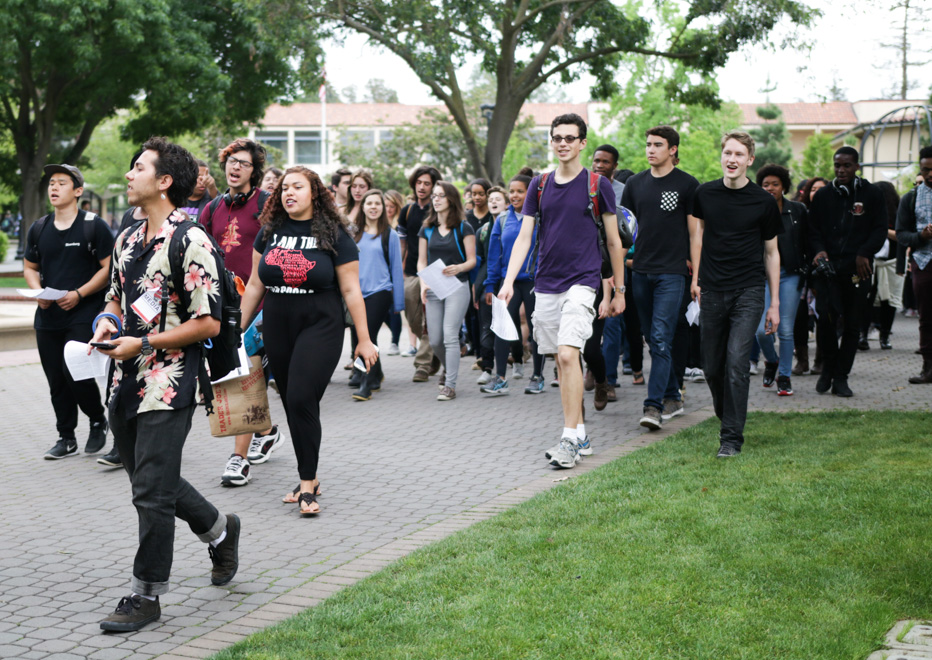The Who’s Teaching Us movement’s (WTU) recently demanded an increase of funding for community centers. These centers’ budgets were slashed in 2008, and despite recent activism, the Stanford administration has yet to announce a return of funding to previous levels.
According to Ray Chen ‘17, staff member at the Asian American Activities Center and a member of Who’s Teaching Us, funding for community centers was cut by 30 to 40 percent, depending on the center.
“It hasn’t been restored officially since then,” Chen said. “The administration might give a one time grant, but it is unclear if it has actually been restored or if the money is going to stay there for sure.”
“Back in 2008, all of the community center staff was reduced from full-time employment to part-time employment and only two years ago were they restored back to full-time employment,” Chen added.
The school administration asked the centers to make plans for possible budget cuts in 2008. While Stanford made a series of cuts throughout the University, the large decrease in funding took community centers by surprise.
“While the centers gave numbers like five, 10 percent, 15 percent, the funding was actually waist-deeper, cut by 30 or 40 percent,” Chen said.
“Nowhere did the staff say they wanted to be reduced to half-time employment, but that was a decision made by the administration anyways, while that didn’t really happen in other departments,” Chen said.
With the number of students who use the centers are increasing, the community centers are also asking for more funding in addition to the official restoration of previous funding.
“Seeing that we’re out of the recession and that we do still have a lot of funds, we feel like the administration should respond by providing more funding”, Chen said.
Each center has two full-time staff members, including student staff. The University’s Minority Issues Commission, created in 1989 in response to student protests, suggested three full-time staff members per center to run the large and vast array of student programs. Currently, only two of the centers have more than two full-time staff, and these part-time staff are funded by other departments.
Additionally, Stanford has instated a hiring freeze on all community centers, preventing the use of funding to hire more staff. Other student affairs departments on campus, such as the BEAM career center, do not have the same hold, leading staffers at community centers to advocate for the hiring of more staff.
“The staff at the community center are constantly putting in the extra hours, doing more work than what’s in their job descriptions to support students,” said Sarah Ribeiro-Broomhead ‘19, the alumni coordinator for the Who’s Teaching Us Coalition.
“At the same time, they’re operating under contracts that leave them with a lot of job insecurity, preventing them from advocating for themselves and the centers the same way that those with more secure positions can,” Ribeiro-Broomhead added.
There are seven community centers across campus, including ethnic centers such as El Centro Chicano y Latino and the Women’s Community Center. While the centers do not directly teach students, WTU maintains they are a key resource for students. The centers have put on a number of activities, such as hosting speakers and teach-ins, and are a physical place for student groups to meet.
“A lot of the students find their homes in the community centers and a lot of staff have been supportive of the students, in a mentoring way,” said Chen. “Community centers are vital to student’s well-being here at Stanford.”
“Personally, I come from a majority Asian community and coming to Stanford, even though they were a good number of Asian students on campus, was a completely new experience for me and I feel like the Asian American Activities Center has supported me during my time here at Stanford and transitioning me to university life,” Chen said. “It would be great if the centers had more of a capacity to help more students.”
With the hope of expanding the role of community centers on campus, meetings between administrators and community center staff are currently underway.
Stanford did not return to a request for comment by the time this article went to press.
Contact Arielle Rodriguez at arielle3 ‘at’ stanford.edu.
